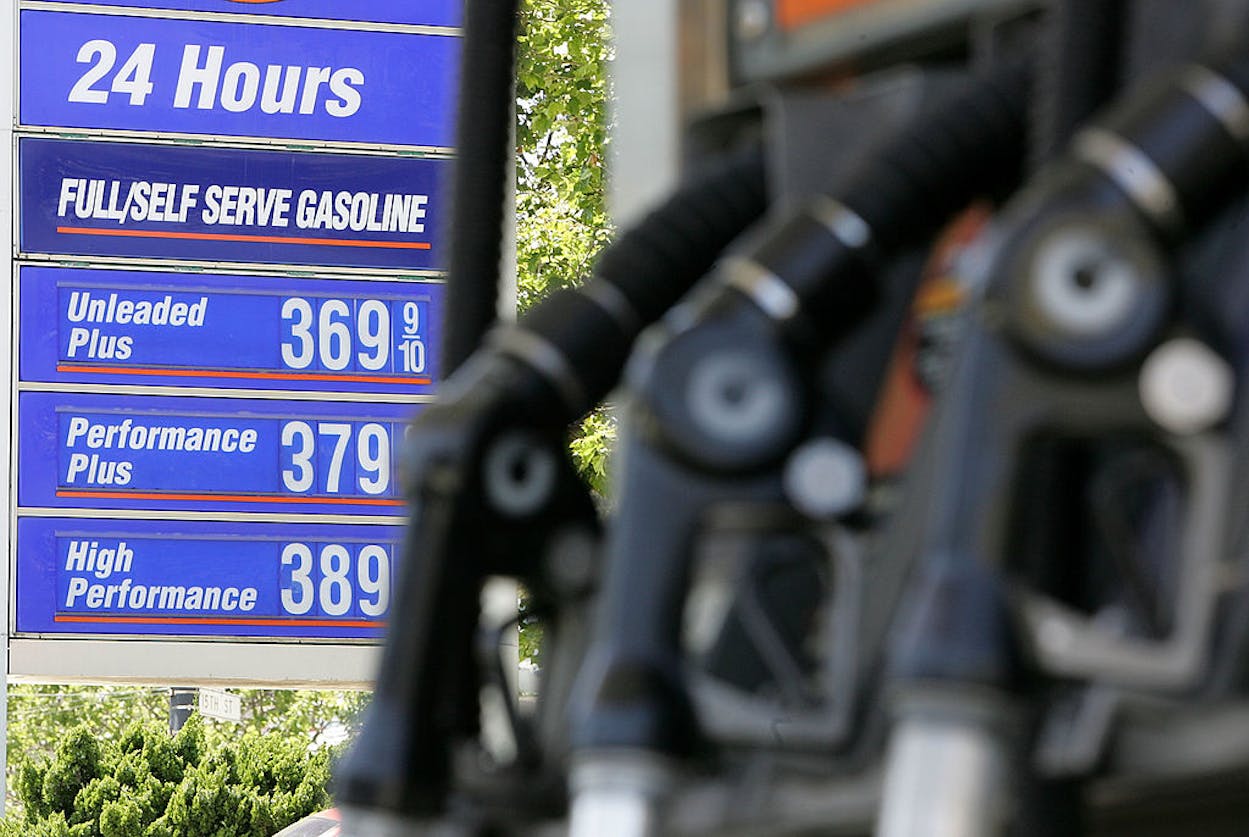On September 1, amid fears of gasoline shortages and rising gas costs in the wake of Harvey, the Department of Energy approved a release of 4.5 million barrels of crude oil from the Strategic Petroleum Reserve. This is the first emergency withdrawal from the reserve in five years. The most recent emergency drawdown, in 2012, was in response to another hurricane, Isaac.
Was the release warranted? There’s no doubt that Harvey had a massive impact on supply: at the time of the ordered release, 22 percent of U.S. refining capacity was offline because of the hurricane, and Gulf of Mexico oil production was down 13 percent. The effects of these shutdowns loomed beyond the Texas economy: as the refineries and crude-producing sites shuttered and supply dropped, the Colonial Pipeline, which transports gasoline between Houston and the East Coast closed as well (because it lacked the volume of gasoline to keep it flowing). Gas prices soared nationwide, and currently remain at their highest for the year. In Texas, the average cost of a gallon rose 37.2 cents over last month’s average, according to GasBuddy.
It’s possible that we’ve now reached the end of climbing prices. Gulf Coast refineries are restarting processes, with almost all resuming production as of Friday, September 8, and Energy Secretary Rick Perry told Bloomberg that he expected only “two-week bump” in prices from the hurricane.
The reserve, located in four salt caverns in Texas and Louisiana, holds the largest supply of emergency crude oil in the world. Established in 1975 by the federal government to mitigate oil import stoppages and as an instrument in foreign policy, the reserve has been used less frequently in the past decade for import cutoffs and more often for recovery in the wake of natural disasters. In a statement in May, the White House called it “a strategic and economic security against foreign and domestic disruptions in oil supplies.”
The Trump administration proposed to sell off half the Strategic Petroleum Reserve in its 2018 budget. “A smaller SPR is projected to be able to continue to meet international obligations and emergency needs,” the White House stated in a budget document in May. The proceeds from the sale, the administration expects, could reduce the federal deficit by $16.6 billion over the next decade.
- More About:
- Energy






